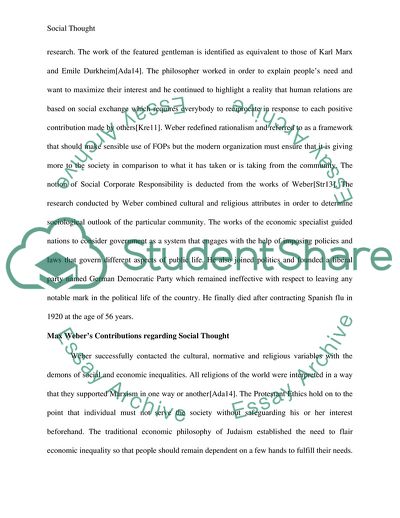Cite this document
(The Role of Max Weber and Theodor Adorno in the History of Social Thou Essay, n.d.)
The Role of Max Weber and Theodor Adorno in the History of Social Thou Essay. https://studentshare.org/sociology/1811606-outline-max-weber-and-theodor-adornos-key-ideas-and-assess-the-extent-to-which-their-work-has-contributed-to-the-development-of-social-thought
The Role of Max Weber and Theodor Adorno in the History of Social Thou Essay. https://studentshare.org/sociology/1811606-outline-max-weber-and-theodor-adornos-key-ideas-and-assess-the-extent-to-which-their-work-has-contributed-to-the-development-of-social-thought
(The Role of Max Weber and Theodor Adorno in the History of Social Thou Essay)
The Role of Max Weber and Theodor Adorno in the History of Social Thou Essay. https://studentshare.org/sociology/1811606-outline-max-weber-and-theodor-adornos-key-ideas-and-assess-the-extent-to-which-their-work-has-contributed-to-the-development-of-social-thought.
The Role of Max Weber and Theodor Adorno in the History of Social Thou Essay. https://studentshare.org/sociology/1811606-outline-max-weber-and-theodor-adornos-key-ideas-and-assess-the-extent-to-which-their-work-has-contributed-to-the-development-of-social-thought.
“The Role of Max Weber and Theodor Adorno in the History of Social Thou Essay”. https://studentshare.org/sociology/1811606-outline-max-weber-and-theodor-adornos-key-ideas-and-assess-the-extent-to-which-their-work-has-contributed-to-the-development-of-social-thought.


